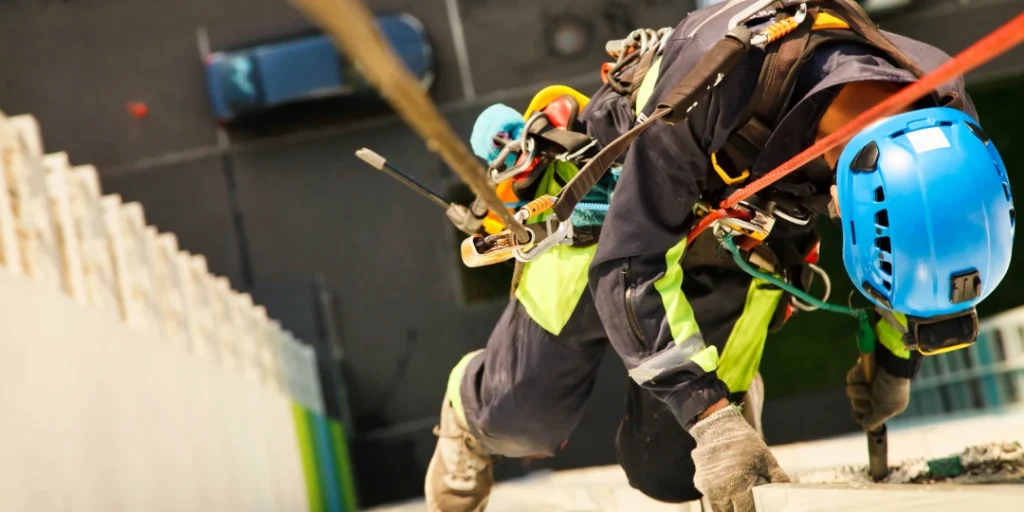Introduction: The Importance of OSHA Compliance in Today’s Workforce
In today’s fast-paced and often hazardous work environments, the role of OSHA compliance has transcended regulatory obligation to become a fundamental pillar of workplace ethics and culture. The 10/30 Hour OSHA Training programs serve as critical tools in building this compliance infrastructure, particularly in cities like Nashville where rapid growth across industries presents both opportunity and risk. These training programs provide workers and supervisors with essential knowledge to recognize, report, and mitigate hazards—turning compliance into a shared responsibility rather than a top-down mandate. When properly implemented, OSHA training fosters a culture of vigilance, preparedness, and accountability, which are all key to maintaining operational excellence and employee well-being.
The demand for safety training has never been more pressing. As industries integrate advanced technologies and expand operations, the margin for error becomes narrower. The 10/30 Hour OSHA Training ensures that employees are not only familiar with regulatory requirements but also capable of applying them in nuanced and dynamic field conditions. Fortier Loss Control’s commitment to delivering this training in Nashville reflects a broader shift toward preventive action and strategic risk management. Workers trained under these programs are better equipped to handle complex safety scenarios, which leads to fewer injuries, lower absenteeism, and increased productivity across the board.
For employers, investing in 10/30 Hour OSHA Training isn’t just about compliance—it’s a direct investment in their workforce. A well-trained employee is more confident, more competent, and more committed. These programs help organizations meet federal and state safety standards while cultivating a team that understands the real-world implications of workplace hazards. In Nashville’s vibrant economic landscape, where industries like construction, healthcare, and logistics are booming, the value of such training cannot be overstated. It transforms risk into resilience and ensures that every worker has the knowledge and tools to protect themselves and their peers.
The Regulatory Landscape: Why OSHA Training Matters
The 10/30 Hour OSHA Training programs are rooted in a regulatory framework that prioritizes human life above all. Established under the Occupational Safety and Health Act of 1970, OSHA was created to set and enforce standards that reduce workplace injuries, illnesses, and fatalities. Over the decades, this mandate has become more robust, emphasizing not just reactive enforcement but proactive prevention. These training programs are the embodiment of that evolution. They serve as the frontline mechanism through which OSHA’s mission is realized—ensuring that every worker understands the risks inherent in their job and is armed with the knowledge to navigate them safely.
Regulatory compliance is not merely a box to check—it’s a dynamic, ongoing process that evolves with industry practices and emerging threats. The 10/30 Hour OSHA Training equips workers with up-to-date, comprehensive guidance on topics ranging from fall protection and electrical safety to hazard communication and ergonomics. In Nashville, where industries such as manufacturing and construction are integral to the local economy, this training becomes even more crucial. With the right education, workers can identify and correct safety issues before they escalate into violations or accidents, helping companies avoid costly fines and reputational damage while promoting a more secure work environment.
Failure to comply with OSHA regulations can result in significant consequences—both financial and human. Penalties for violations can reach tens of thousands of dollars per incident, and in severe cases, can trigger lawsuits, shutdowns, or criminal liability. But beyond the monetary costs lies a greater threat: the risk to human life and morale. When workers undergo 10/30 Hour OSHA Training, they become the first line of defense against such outcomes. They gain a nuanced understanding of their rights, the responsibilities of their employers, and the practical steps necessary to uphold a safe working environment. In effect, the training bridges the gap between regulatory intent and operational reality.
Understanding the 10-Hour vs. 30-Hour OSHA Training Courses
The 10/30 Hour OSHA Training courses are foundational to workplace safety education, yet they are tailored for different roles within an organization. The 10-Hour OSHA Training is designed for entry-level workers who need a broad understanding of general safety principles. It offers a solid introduction to hazard identification, workers’ rights, and employer responsibilities. In contrast, the 30-Hour OSHA Training goes much deeper, intended for supervisors, site leads, and safety officers who bear greater accountability for implementing and overseeing safety protocols. This bifurcation ensures that safety training is appropriately scaled to the complexity and influence of each role on the job site.
Both courses, while varying in depth, share a common objective: to reduce workplace incidents through informed awareness and practical skill-building. The 10/30 Hour OSHA Training programs provide structured, instructor-led sessions that cover OSHA regulations in a manner that is accessible and actionable. For Nashville’s diverse workforce—spanning industries from logistics to construction—this dual-track approach allows employers to deploy the right training level based on the unique exposure and decision-making power of their teams. It’s not just about hours logged in a classroom; it’s about building a safety culture from the ground up and ensuring that both frontline workers and supervisors speak a common safety language.
Fortier Loss Control delivers these courses with precision, leveraging industry-specific case studies and hands-on simulations to make content resonate. Participants in the 10-Hour OSHA Training come away with a clear understanding of workplace hazards and the basic steps to protect themselves. Those in the 30-Hour OSHA Training dig deeper into policy implementation, accident investigation, and advanced risk management. In a city like Nashville, where construction cranes dot the skyline and warehouses hum with activity, this layered education model is essential. It ensures that every tier of the workforce is empowered, not just to comply, but to lead safety efforts with confidence and clarity.

Fortier Loss Control: A Trusted Safety Partner in Nashville
Fortier Loss Control has emerged as a trusted name in safety education throughout the Nashville area, owing largely to its unwavering commitment to quality, compliance, and community. By offering robust 10/30 Hour OSHA Training, Fortier serves as both an educator and a strategic partner to businesses seeking to enhance their safety programs. The firm’s reputation is built not just on its curriculum, but on its consistent delivery of results—reductions in injury rates, improved inspection outcomes, and a more engaged, safety-conscious workforce. In a regulatory climate where trust is earned through action, Fortier has positioned itself as an indispensable ally.
What sets Fortier apart is its deep-rooted presence in the Nashville community and its intimate understanding of local industry needs. Unlike national providers that deliver boilerplate content, Fortier’s 10/30 Hour OSHA Training programs are carefully adapted to the regional labor landscape. Whether serving small contractors or large-scale manufacturers, Fortier engages with each client to ensure relevance, clarity, and practical value. The result is training that sticks—concepts that are not just learned but lived, reinforced daily on job sites across Middle Tennessee. Workers trained by Fortier aren’t just compliant—they’re confident.
Beyond instruction, Fortier acts as a consultant, advisor, and resource hub. Its trainers—many of whom have decades of field experience—don’t just teach regulations; they interpret them within the context of real-world job environments. Nashville employers appreciate this level of expertise and support, knowing that Fortier’s 10/30 Hour OSHA Training is more than a certification program. It’s a catalyst for operational excellence and a critical step toward creating safer, more resilient workplaces. From training sessions to post-course follow-ups, Fortier’s engagement is continuous, purposeful, and deeply rooted in a genuine commitment to worker safety.
Tailored Curriculum to Address Industry-Specific Hazards
A one-size-fits-all approach to safety training often falls short in today’s specialized industries. Fortier Loss Control acknowledges this reality by offering 10/30 Hour OSHA Training that is customized to address the unique hazards of each trade. Whether the environment involves heavy machinery, elevated workspaces, hazardous materials, or confined spaces, Fortier’s curriculum is deliberately structured to reflect the risks workers actually face. This contextual relevance enhances retention and ensures that trainees can immediately apply what they’ve learned to their specific roles, increasing the training’s overall effectiveness and value.
In Nashville, where the workforce spans a diverse range of sectors—from commercial construction to healthcare logistics—the ability to tailor content is crucial. Fortier’s 10/30 Hour OSHA Training delves into modules that reflect the nuances of each field. For instance, construction workers might focus on fall protection and scaffold safety, while warehouse personnel receive in-depth instruction on material handling and machine guarding. This degree of specificity not only improves learner engagement but also aligns with OSHA’s emphasis on hazard-specific training. Workers don’t just memorize checklists—they internalize scenarios, anticipate challenges, and take proactive steps to avert harm.
The tailored nature of Fortier’s training extends beyond subject matter into delivery style and instructional pacing. Some teams benefit from intensive, hands-on sessions, while others prefer a modular, time-flexible format. Fortier adapts accordingly, ensuring that 10/30 Hour OSHA Training is never a passive experience. Instead, it becomes an interactive dialogue between trainers and participants—rooted in real situations, guided by real expertise, and designed to produce real results. In a city like Nashville, where safety standards can vary widely between job sites, this personalized approach makes all the difference in ensuring consistent, meaningful compliance.
Certified Trainers with Field-Tested Experience
The credibility of any safety training program hinges on the qualifications of its instructors. At Fortier Loss Control, 10/30 Hour OSHA Training is delivered by certified professionals who bring more than just theoretical knowledge—they carry the weight of field-tested experience. These trainers have spent years in high-risk industries, managing hazards, conducting inspections, and leading incident investigations. This boots-on-the-ground perspective infuses every session with authenticity, enabling trainees to learn from individuals who have encountered the very dangers they’re being trained to avoid.
Workers often retain more information when they can connect it to real-life experiences. Fortier’s instructors leverage this by sharing firsthand stories, near-miss scenarios, and lessons learned from the field. Whether it’s a close call with energized equipment or a fall from an improperly secured ladder, these narratives humanize the regulatory content, making it more relatable and impactful. In 10/30 Hour OSHA Training, this storytelling method transforms dense compliance language into clear, actionable insight. It bridges the gap between policy and practice, and it fosters a deeper sense of urgency and ownership among participants.
Moreover, Fortier’s commitment to ongoing professional development ensures that its trainers remain at the forefront of OSHA regulations and industry trends. They attend refresher courses, participate in safety forums, and collaborate with other safety experts nationwide. As a result, Fortier’s 10/30 Hour OSHA Training reflects not just the current regulatory standards, but also emerging best practices and real-time solutions to evolving workplace challenges. In Nashville’s fast-moving economic landscape, having trainers with this level of insight and adaptability is an invaluable asset to employers and workers alike.

Flexibility and Accessibility: Training That Meets the Worker’s Schedule
In many industries, particularly those involving shift work or tight production schedules, traditional training formats are often a poor fit. Fortier Loss Control understands these constraints and has designed its 10/30 Hour OSHA Training programs to be as accessible and adaptable as possible. With both in-person and virtual options, flexible scheduling, and bilingual instruction, Fortier removes the logistical hurdles that can otherwise hinder participation. Whether a worker needs evening classes after a long shift or weekend sessions to accommodate family commitments, Fortier delivers training on the learner’s terms.
This flexibility is especially important in a city like Nashville, where the workforce is diverse not only in occupation but also in background and language. Fortier’s 10/30 Hour OSHA Training can be customized to accommodate multilingual teams, ensuring that safety information is understood clearly and effectively across all demographics. Instruction is paced to match comprehension levels, and real-time feedback ensures that no one is left behind. In this way, Fortier fosters inclusivity without compromising the rigor or integrity of the training, making safety education a reality for all, not just a privileged few.
The accessibility of Fortier’s programs also extends into their technological platforms. Online training modules are designed with mobile compatibility in mind, allowing workers to complete sections of the course from smartphones or tablets during downtime. For employers, this means less disruption to operations and better participation rates. For workers, it means empowerment and convenience. By making 10/30 Hour OSHA Training this user-centric, Fortier bridges the gap between intention and execution—bringing safety training directly to those who need it most, whenever and wherever they’re ready to learn.
Real-World Application: From Classroom to Job Site
One of the greatest strengths of Fortier Loss Control’s 10/30 Hour OSHA Training is its emphasis on practical application. The training is designed not simply to convey information, but to instill behaviors and habits that translate seamlessly to the job site. Through interactive exercises, hazard simulations, and scenario-based discussions, participants don’t just memorize rules—they practice how to react under pressure, evaluate risks on the fly, and intervene when unsafe conditions arise. This kinesthetic learning style ensures retention and prepares workers for the unpredictability of real-world environments.
During training sessions, Fortier instructors present common—and sometimes overlooked—workplace scenarios tailored to the participant’s industry. A warehouse trainee may work through a simulated material spill, while a construction worker practices identifying fall hazards on a mock scaffolding setup. These exercises embed safety responses into muscle memory. By making 10/30 Hour OSHA Training a tactile, experiential process, Fortier enhances the worker’s ability to respond to threats instinctively and effectively when it truly counts. It’s about developing reflexive competence, not just theoretical awareness.
The impact of this real-world application becomes clear in the reduction of incidents post-training. Employers who invest in Fortier’s 10/30 Hour OSHA Training often report tangible improvements—fewer safety violations, increased reporting of near-misses, and a noticeable shift in worker engagement with safety protocols. The training doesn’t end at the door. Workers return to the field with heightened situational awareness and a greater sense of personal and collective responsibility. In a landscape like Nashville’s, where job sites are constantly evolving, that kind of readiness is not just valuable—it’s essential.
Local Impact: Building a Safer Workforce Across Nashville
The ripple effect of comprehensive safety training is profound, particularly in a thriving metropolitan area like Nashville. Fortier Loss Control’s 10/30 Hour OSHA Training programs don’t just benefit individual workers—they elevate the safety culture of entire organizations and, by extension, the broader community. As more businesses across the region commit to training their employees, the cumulative result is a stronger, more resilient workforce. Job sites become more disciplined, communication improves, and the number of workplace injuries declines. These aren’t abstract gains—they are measurable, lived improvements that enhance the economic and social fabric of the city.
Nashville’s economic vitality is powered by sectors known for their inherent risk—construction, logistics, distribution, and industrial manufacturing. In these environments, even small lapses in protocol can lead to serious consequences. Fortier’s 10/30 Hour OSHA Training programs directly address this reality by embedding a safety-first mindset into every level of the workforce. Supervisors trained under the 30-Hour course become stewards of accountability, while entry-level workers completing the 10-Hour course emerge with a clearer understanding of their rights and responsibilities. This coordinated awareness mitigates risk and fosters an environment where safety is seen as a shared, non-negotiable value.
The impact of Fortier’s efforts is evident not just in incident statistics, but in the growing trust between employers, workers, and the community. Businesses that invest in safety send a clear message—they value their people and are committed to ethical, sustainable growth. In Nashville, where competition for skilled labor is high, this message resonates. Workers gravitate toward companies that prioritize their well-being. Fortier’s 10/30 Hour OSHA Training serves as a bridge between employer intent and employee trust, making it an essential element in building both a safer workplace and a stronger, more united city.

Frequently Asked Questions

Conclusion: Strengthening Nashville’s Workplaces One Course at a Time
In a labor environment where risk is an ever-present factor, the imperative for OSHA compliance cannot be overstated. Fortier Loss Control’s 10/30 Hour OSHA Training programs rise to meet this need with precision, depth, and unwavering commitment. These courses do more than fulfill regulatory requirements—they establish a safety ethos that permeates job sites, boardrooms, and communities alike. Whether it’s a young apprentice stepping onto a scaffold for the first time or a seasoned supervisor managing complex operational hazards, Fortier equips every participant with the tools to lead with awareness and act with integrity.
Nashville’s economy is thriving, driven by industries that demand high standards of operational excellence and human safety. In this context, Fortier’s role is not ancillary—it is essential. The company’s 10/30 Hour OSHA Training programs have become a cornerstone of the region’s workforce development, trusted by employers and respected by workers. The local impact is tangible: fewer injuries, greater compliance, and a pervasive culture of accountability. Fortier has demonstrated that when safety training is done right, it elevates not just individuals, but entire organizations.
Looking ahead, the path to a safer Nashville runs through sustained education, strategic foresight, and partnerships rooted in trust. Fortier Loss Control continues to lead that charge—one training session, one empowered worker, and one safe decision at a time. For businesses that understand the value of investing in their people and for workers who deserve to be protected and prepared, 10/30 Hour OSHA Training with Fortier is more than a requirement. It is a professional imperative—and a commitment to building a future where safety is not an option, but a standard.



